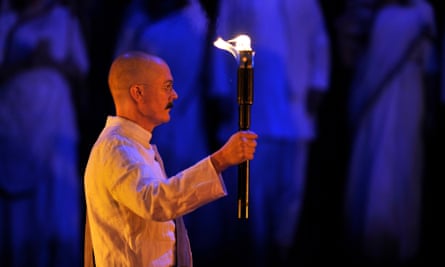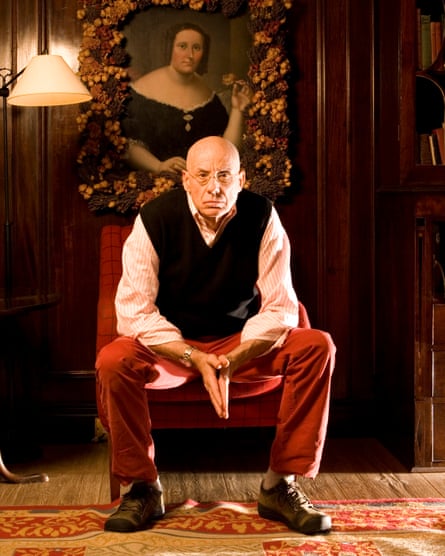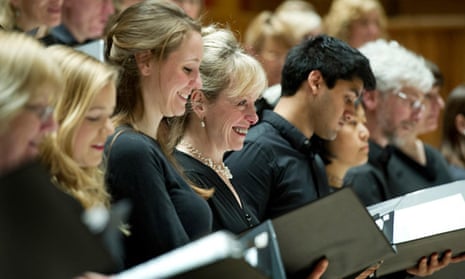Every classical musician knows that with each passing year we have to work harder to promote our art. Classical audiences are dwindling, and despite all their efforts musicians and the institutions that support them do not seem to be finding ways to stem that flow. A 2012 study found that the adult ticket-buying audience in the US for classical music had gone from 11.6% of the population to 8.8% over the previous decade. Coverage is shrinking to small corners of the media, while music’s presence in schools is in danger of extinction.
For the past couple of years I have been part of a panel tasked with considering the challenges classical music faces today and finding ways it can reach wider, younger audiences. There are about 20 of us, a mix of composers, musicians, journalists, philosophers, economists, mathematicians and arts administrators. Discussions can become emotional and sometimes even combative – the subject matter is of deep concern to all of us.
The discussions invariably follow a similar path. A panel member who doesn’t work in the industry asks a question or puts forward an idea, and a response comes from the classical music professionals along the lines of “You just don’t understand” or “We tried that but it’s not that simple”.

At one recent meeting each of us was asked to submit a piece of blue-sky thinking about what shape a future performance space might take, however fantastical or improbable. I saw excitement and enthusiasm in the faces of the non-musicians, but was depressed by the stony silence with which the request was met by the others.
I sympathise with their jaded response because I know classical music administrators spend their lives making bricks with precious little straw. Blue-sky thinking is all very well but fantastic ideas cost fantastic amounts of money, and the freedom to conduct bold experiments that run the risk of failure is a luxury no classical planner can afford. But that aside, I am interested in what non-professional musicians and enthusiasts have to contribute to the way we perform and appreciate classical music.
Why does the classical music industry only look to its own professionals to solve its problems? I know musical enthusiasts whose opinions are no less informed or apposite than my own and work in professions where thinking laterally and finding creative solutions is a daily requirement. Surely these people are better able to understand conundrums and see resolutions than I am.
We expect music administrators, whose have the crucial and thankless tasks of raising funds and planning creatively inspiring seasons, to come up with all the answers. It can’t be easy for them to find the time, vision or knowhow to navigate a media world in which classical music competes with Netflix, Amazon, film studios, sports federations, pop music and comedy tours – to name just a few. It strikes me as interesting that ENO has hired Stuart Murphy as its new chief executive. Murphy has no professional classical music experience but launched BBC Three and went on to work for Sky TV, heading its entertainment channels.

One of the problems we face is the ever-widening gap between what classical music professionals think audiences know about the art form and what your average ticket buyers actually know. I’m convinced that an audience’s experience could be greatly enhanced by more explanation of the music they’re about to hear. Do any of us read the programme notes before the concert? Wouldn’t it be more rewarding to hear the performers’ thoughts about the work than reading those of a music historian?
And if the musician isn’t a confident communicator, why not look to wider arts professionals who would surely be delighted to share their passion for a symphony or a composer? When the crime writer James Ellroy appeared on Desert Island Discs, his eight favourite recordings comprised five works by Beethoven, two by Bruckner and one by Sibelius. Let’s invite him to introduce a series of concerts, it would be riveting – and possibly even controversial.
A year ago I joined the Bach Choir’s board of trustees. The Bach Choir – founded in 1876 to give the first UK performance of Bach’s Mass in B minor – is one of the world’s leading amateur choirs, performing regularly and with varied concert programmes.
At my first meeting, I suggested that members of the choir be given the opportunity to help the audience’s understanding of the music by whatever means they could invent at minimal cost. To my delight, the planning group leapt at the idea, and 30 minutes later I found myself addressing the 250-strong choir.
Sixteen volunteers stepped forward to join me in a discussion about what could be added to a performance of Sergei Prokofiev’s brilliant score for Sergei Eisenstein’s epic historical film Alexander Nevsky. Among them were a barrister-turned-playwright, a TV producer, historians, archivists and public speakers. The group split into researchers, writers and presenters, and they were given carte blanche to develop a programme around the work. Ideas poured out and a shape quickly began to emerge. A game soprano who had recently joined the choir and happens to be a budding theatre director was elected leader.

Three months later, we have a script that wittily tells the extraordinary tale of how Eisenstein’s film and Prokofiev’s score came about; the actor David Bamber has been engaged to play the part of Prokofiev and rehearsals are under way.
This experiment is my attempt to see what amateur enthusiasts can do to bring classical music closer to its audience. There is a buzz of excitement around the project in the choir and I’m delighted by what’s been done so far.
Whether the Bach Choir will extend augmented programming of this sort to other repertoire remains to be seen. First we want to listen to what the audience has to say. Come to the concert and tell us what you think.
- The Bach Choir and the Philharmonia Orchestra perform a programme that includes Alexander Nevsky at the Royal Festival Hall, London, on 3 May.

Comments (…)
Sign in or create your Guardian account to join the discussion